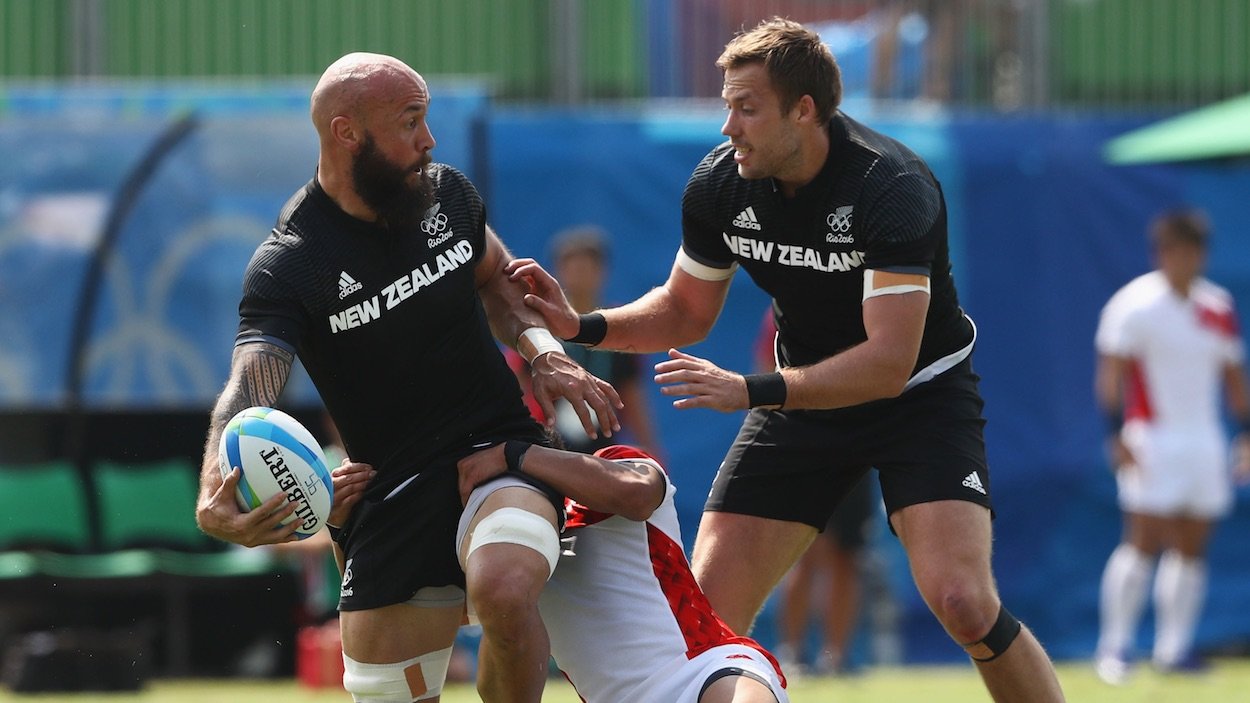The New Zealand men’s sevens Olympic campaign wasn’t given a fair chance by a rugby union which still sees the seven-a-side game as a poor relation to 15s, writes Scotty Stevenson.
It was a salty old hot take-o-rama after the New Zealand Men’s sevens team was bundled out of the Olympic Games in Rio this evening. They were bundled out by Fiji, who are coached by Englishman Ben Ryan, who didn’t get paid for the first few months when he took the job following a long career in charge of his home nation. He’ll be getting paid if he can lead them all the way to gold. It’ll be the nation’s first ever medal. That it could come in their national sport would be one of the great stories of these Olympics.
Alas, New Zealand Rugby will not be the story of these Olympics. They could have been. Nine months ago I wrote a feature on Sir Gordon Tietjens and his quest for the gold medal. Tietjens may not be everyone’s cup of tea, and his coaching methods may not be universally popular, but his record is second to none and he deserved to be supported through this campaign. It is hard to buy any line that starts with “we gave the sevens programme everything it needed to succeed.” This programme did not have everything it needed. Obviously.
The problem is not with the effort of the players. Anyone who has been around a sevens side or who has watched a tournament will know that this is a game that is all about effort, and repeat effort. Those that would argue the players didn’t care enough, well, I’m afraid they are ignorant in the extreme, or just full of shit. The players did care about it, which is why Kurt Baker voiced his displeasure at his non-selection, and Liam Messam was privately devastated not to be a part of the team. It is also why the women’s side cried after they won an Olympic silver medal.
No, it’s not the effort of the players. It’s simply the volume. In order for teams to improve they require internal competition. New Zealand sevens just cannot get its hands on enough players to make that the case. Even in Olympic year, with two gold medals in Rio a key measure of success for New Zealand Rugby, the Sevens were off limits for All Blacks, for Super Rugby players, and for New Zealand under-20 players. Ardie Savea’s decision to join the team and then withdraw after it became clear he would make his All Blacks debut just shows what the real priority is.
And it shouldn’t be. New Zealand fans can be a myopic bunch when it comes to the growth of rugby around the world. Many (some of whom hold key roles in the sport) still don’t think sevens is a legitimate game, and many more roll their eyes at the mention of the game’s ever-expanding reach in places like the USA and Asia. Well, open those eyes. When major American broadcasters such as ESPN are calling sevens one of the ten ‘must-watch’ events at the Olympics, and NBC are showing the sport live and free-to-air that’s a big thing. Bigger, I hate to tell you, then pumping the Welsh 3-0 in a test series in New Zealand shown at breakfast time in the UK.
Many fans around the world will rejoice at the New Zealand side’s early exit from this Olympic tournament, and there is little doubt Tietjens and his team will be lamenting their loss. But there can be no other way to put this. New Zealand Rugby underestimated the scale of this event and the toughness of the tournament, and they will now have to face the cold hard reality that on the world’s biggest sporting stage they let a massive opportunity pass them by. As did the players who said no to the programme.
Sevens was given a long-overdue rebirth in Rio this week. It’s a shame New Zealand Rugby missed the delivery.





























































































